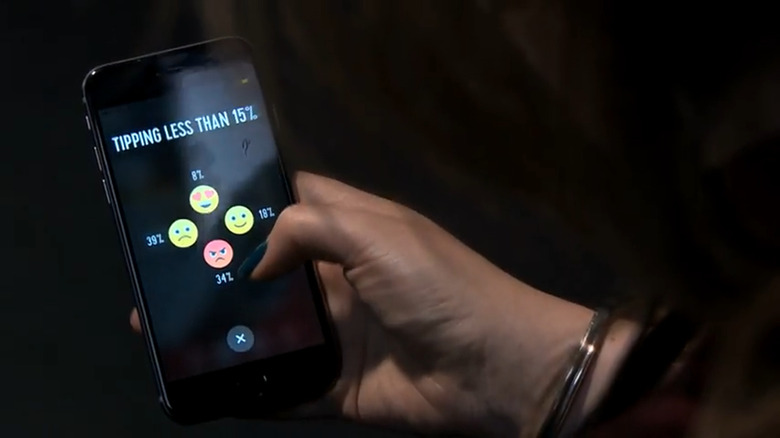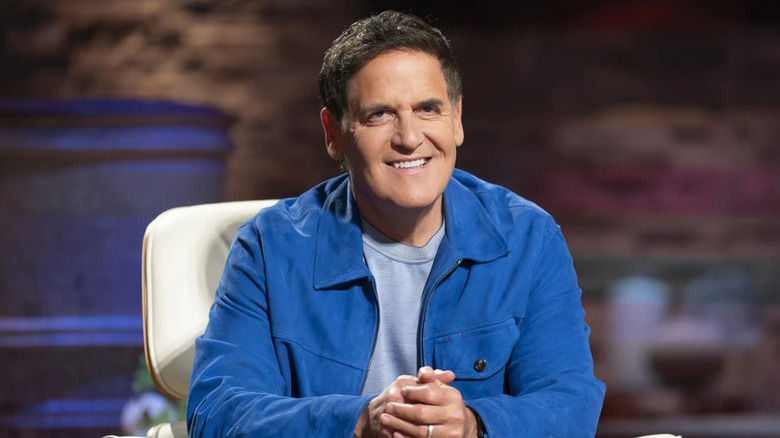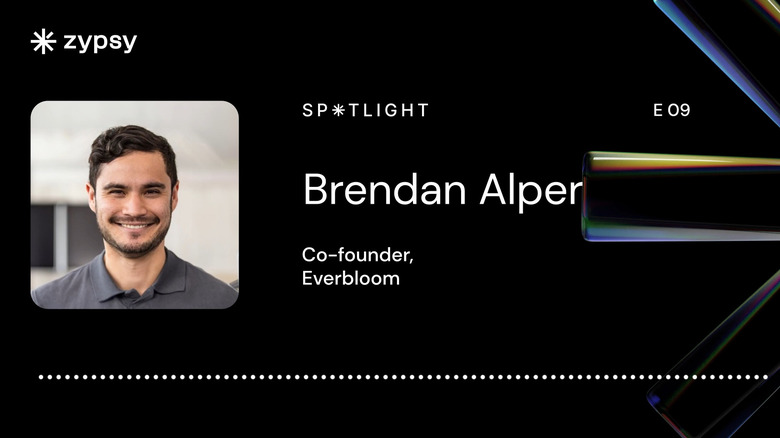What Happened To The Hater Dating App From Shark Tank Season 9?
ABC's "Shark Tank" has seen a wide range of mobile apps come through the show that are all meant to solve some type of problem. In the ninth episode of Season 9, Wall Street worker turned comedian Brendan Alper shared his solution to modern dating problems: an app that allows its users to bond over things they both don't like, Hater. The app had over 3,000 prompts that range from politics to food that users must swipe either "hate" or "love." Then the app would use its algorithm to match users with other haters with similar views. The app was based on studies that show that people often connect over a mutual dislike of something.
The Sharks were immediately intrigued with the concept and ended up fighting to invest in Hater, which saw over 500,000 downloads when it debuted just before Valentine's Day in 2017. But just like many other popular apps, Hater saw a rapid decline and wasn't able to find a successful way to make a profit. Even with billionaire Mark Cuban's support, Hater couldn't find a way to survive past 2018. Here's what led to Hater's rapid downfall after "Shark Tank."
What happened to the Hater dating app on Shark Tank?
Founder Alper entered the tank with a pitch for his negative spin on dating apps, explaining that users will find love by connecting over their dislikes. Alper told the sharks that people often feel the need to appear positive on dating apps, while Hater lets them authentically dislike things together, promising more genuine matches. The concept started off as a joke, but Alper was later convinced by his friends to go all in on the app — and even cashed in his entire savings to fund the app.
He went in asking the sharks or $200,000 for 5% equity of Hater. The app received offers from Lori Greiner, Robert Herjavec, and Barbara Corcoran — but Alper ultimately went with Cuban, who is no stranger to funding apps. Cuban counter-offered $200,000 in exchange for a 7.5% equity stake, despite Alper admitting to the app only have 8,000 to 10,000 active users by that time. On the episode, Alper said, "Going in, I really wanted Mark. He has experience in the technology space, and he has the connections that can really take Hater to the next level."
What happened to Hater after Shark Tank? Is it still in business?
The Hater app saw a rapid decline, even after an appearance on "Shark Tank." A deal was officially made with Cuban, who even made his own dating profile on the app as part of his push. However, Hater left app stores and deleted its social media profiles by 2019, just a year and a half after the episode premiered. Cuban doesn't have the product listed as one of the companies he invested in on his website. This isn't the case with all apps that appear on "Shark Tank," however, with apps like HoneyFund still in business.
It's not totally clear exactly what caused Hater to not get the users it needed to thrive in the dating app space, but it appears to be due to a lack of profit. Alper admitted to CNBC that the app wasn't making any profit as of 2017, but he had plans to implement paid premium subscriptions and advertisements by 2018. This never happened in the end, but it's unclear why. At this point, Alper has completely moved on from Hater.
What's next for Hater's founder?
The Goldman Sachs finance worker turned comedian turned app entrepreneur may have left Hater behind, but he isn't done with business ideas just yet. On Alper's X, formally Twitter, profile bio, he includes a link to a new business called Everbloom. He hasn't updated X much, but the website for Everbloom is still active and updated. It reveals a business focused on providing funding for content creators, largely on YouTube, who want to grow views by expanding their team, launching a product, or film a larger production. Past clients even include Jimmy "MrBeast" Donaldson, a YouTuber with 335 million subscribers.
On June 21, 2023, Everbloom kicked off its first investor payout, sharing 10% of YouTuber AveryB's quarterly earnings to over 100 investors. Everbloom also added Mario Joos, MrBeast's former retention director, as an advisor. With big names behind the company and even larger creators growing thanks to various marketing support from Everbloom's team, the project received $3 million in funding at that point.



